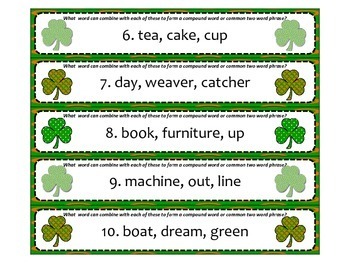

Through and through is only usable in this last way, and must also, like enough, follow the complement ( e.g. Of these latter, by and large, first and foremost and to all intents and purposes may describe a sentence or adverb, or a complement as in … was by and large a success. Saying something about a verb is possible for all except those marked *. The adverb uses of the above-listed expressions are not all the same. It is usable as an adverb because the individual words that make it do not have to add -ly to become adverbs in informal contexts (see 120. Nice and easy is an informal expression that also appears in the adjective list below. There is a similar situation with home in home and away, the “understood” preposition being at.

It seems that day and night breaks the preposition rule in the same way as various other time nouns do ( cp. (f) Background radiation was the same in all directions day and night. Time and again means “regularly” now and again means “occasionally”.ĭay and night, which also appears in the noun list above, and could have by in front when an adverb, is usable without it like this: We find two verbs in lo and behold and nip and tuck, while time and again combines a noun with an adverb. Seven Things to Know about Prepositions, #2) otherwise, one tends to find adverbs, including ones that elsewhere might be prepositions, such as by (see 120. Nouns are common, usually with a starting preposition, the typical means of putting nouns in adverb positions (see 84. The kinds of words that help make these adverb phrases are not all the same. (d) Errors occur off and on in all contexts. For an explanation of compare and contrast, see 94. Give and take is also usable like a noun. (c) When share prices fall, it is time to cut and run. Rarer Uses of HAVE, #6) and in some preposition phrases ( e.g. The noun-like use of verbs in their base form, as in cut and thrust and give and take is also found after HAVE ( e.g. A few, indicated by *, seem like other word types but are still nouns. The two words combined with and are usually nouns like the whole phrase. It frequently follows a possessive adjective like our in (a). Bread and butter is included because it has a metaphorical meaning of “primary source of regular income”. I have omitted many food combinations in this category because they are rare in formal writing. (b) Successful relationships involve give and take. (a) Magazine sales are our bread and butter. Usually the words within the expression will reflect this word class, but not always.Ī noticeable trend among the examples is that the word after and often has more letters than the one before, or at least the same length. For example, a pairing that is a “noun expression” is typically used in sentences in noun positions (subject, object, complement, etc.). These are not of individual words within an expression but rather of the whole expression. The categorisation below is in terms of word classes. Readers who know examples not included here are invited to contribute them via the comment facility below.

My list, which has been gradually compiled over time, is probably not complete, but will still hopefully be useful. Most advanced English courses make reference to them and provide a few examples, but I have not seen them extensively surveyed and classified. Some Common Figurative Phrases and 273, Verb-Object Collocations.Ĭollocations with and are surprisingly numerous. For examples of other collocation types within this blog, see 164. This property of fixed and expressions makes them a type of “collocation”, or “word partnership” – an aspect of vocabulary that is almost as important to master as word meanings. It would not be difficult, for example, to complete husband and… and far and… with, respectively, wife and wide.
#COMMON 2 WORD PHRASES WTH AND PLUS#
They are “fixed” in the sense that most fluent English speakers feel they are very common combinations indeed, if presented with the first word(s) of one of these expressions plus and, they would normally be quite easily able to provide the rest. Fixed phrases with and tend to be of this latter sort. The conjunction and is unusual in being able to link not just verb-based statements but also grammatically similar words or phrases. English has numerous fixed expressions made by combining two words with “and” DEFINITION AND IMPORTANCE OF FIXED “AND” PHRASES


 0 kommentar(er)
0 kommentar(er)
